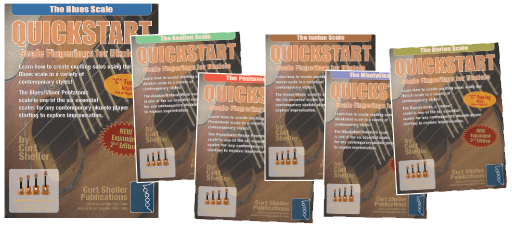LearningUkulele.com - What Level Are You?
Learning the Ukulele — Invest 80% of your learning time in the fundamentals of music, the basics, the principles of music - the chords, the scales, rhythm, etc... Leave 20% for the songs.
Ukulele Study Plans, Evaluating Your Ukulele Music Knowledge...
Self-Assessment can be one of the hardest things to do when it comes to your musical development. How can you know what you don't know? If you're not sure of your current level, here are several tips and points to keep in mind for figuring out where you are in your musical development.
And, remember, you'll most likely not be at the same level in all areas of potential study and areas needing development.
What Level Are You?
Most “beginners” think they are “intermediate” players, and most “intermediate” players think they are “advanced”. Advanced players typically know what they need to work on, and think there are more intermediate players than advanced players. My take is that every player is all three. Everyone should be a beginner, as you're always “beginning” the next phase in your artistic development.
You might be a “beginner” in one aspect of your learning and “intermediate” or “advanced” in other areas. This is especially true if you have experience playing other instruments or have focused on one aspect of your playing.
Chords are a great indicator of your current level:
Beginner: C Am F G7 Open Position Chords
Maybe C7, Dm, Em, etc... The essential major, minor, and seventh chords using the Open Position Chords ⇒. These are the chords utilizing the first three or four frets of the ukulele and include at least one open string.
Here is a FREE Basic Open Position Chord Charts ⇒ to get started with.
Intermediate: Movable Form Chords
Open Position Chords transposed up the fingerboard, with any open strings replaced with a finger(s) or a barre. There are the A/Bb, C/Db, D/Eb, F/Gb, G/Ab [Movable Form Chords ⇒(https://learningukulele.com/lessons/code/UL114a). Your diminished, diminished seventh, and augmented chords.
Advanced: The Big Six - Level I Chords
These are 7, m7, maj7, m7b5, dim7, and 7#5 (aug7) — The Core “Jazz” Ukulele Chords — The Big Six ⇒. These are 4-part Contemporary Chords ⇒, commonly called “Jazz” chords. You derive these chords from the open-position A7, E7, G7, and C7** chords. This is a massive chord category — but mastering the Big 6 and these chords are all of a sudden somewhat easily managed with this system. There are only 11 chords to memorize, 4our voicing each. And 2 of then are quite rare, so 9.
Master: Levels II, III, IV, and beyond "Jazz" chords
You can create any chord you'll need based on a solid foundation of chords, music theory, and how chords are built and used. This is the realm of (Free Form Chords ⇒)[https://learningukulele.com/lessons/code/UL114e], where you know your Music & Chord Theory ⇒ and the Notes of the Ukulele Fingerboard ⇒.
With the intermediate and above levels, you need to start to know the ukulele fingerboard. When well into more advanced levels and beyond, it is imperative that you flat out know the ukulele fingerboard, and they are on instant recall and second nature.
Checkout the Types of `Ukulele Chords Lessons Series ⇒ for a great overview of what is possible as far as chords go.
The bottom line is: “You'll be playing chords more than anything else!” in you musical journey.
Scales are another good indicator of your current level:
Beginner: This is typically an intermediate chord player starting to learn the Blues and Pentatonic scales. Two of the Six Essential Scales for a contemporary ukulele players.
Intermediate: The Major, Natural Minor, Mixolydian, and Dorian scale. The rest of the Six Essential Scales. You're starting to explore arpeggios and intervals.
Advanced: The Seven Modes, Altered Mixolydian scales, Whole Tone and Diminished scale, Exploring Improvisation Using Tetrachords. Basically, what every else you need to know for your style of music. Your essential scale, arpeggios, intervals, and sequences.
As you can see, it's difficult and challenging to create a general appraisal of a ukulele player without actually knowing that particular player, their experience, goals, and technical abilities. An experienced teacher can help out. It's often challenging to evaluate yourself and identify where you are in your development. An outside set of ears and eyes can help determine the right course of development, depending on your goals.
Head on over the Learning Ukulele with Curt at learningukulele.com ⇒ for more
Teaching Yourself
Teaching yourself can be frustrating at times. One problem with going the self-taught route is the glut of information available online— even right here on the Learning Ukulele with Curt site. There's no one controlling the flow of information, no one to guide you from the necessary foundation skills and knowledge needed for more advanced concepts on any particular topic. Patience is paramount to yourself and crucial — there's nothing in the world that someone hasn't managed to learn, starting from right where you are now. And, it's probably written somewhere, either in a book or accessible online.
Links and Resources
- Ukulele Study Plans, Evaluating Your Ukulele Music Knowledge... [What Level Are You? ⇒]([ttps://learningukulele.com/lessons/code/UL001]
- )
For someone new to ukulele, start with this Series of Weekly Lessons ⇒ that will help you create a core foundation for future development. And, fill in some gaps in your existing knowledge and skills.
The Best LearningUkulele.com Site Membership Deal
Keeping the Forever Special of $199 and never pay again for the remainder of 2024. Many members and fellow musicians believe the current pricing is undervalued considering the depth of content offered. Therefore, starting in 2025, the price will increase to $399.Please let me, LearningUkulele.com, know if you have any other tips and goodies. I'll (Curt), will add them (with credit). The Ukulele Community as all about sharing.
 Six Essential Scale for Ukulele
Six Essential Scale for Ukulele